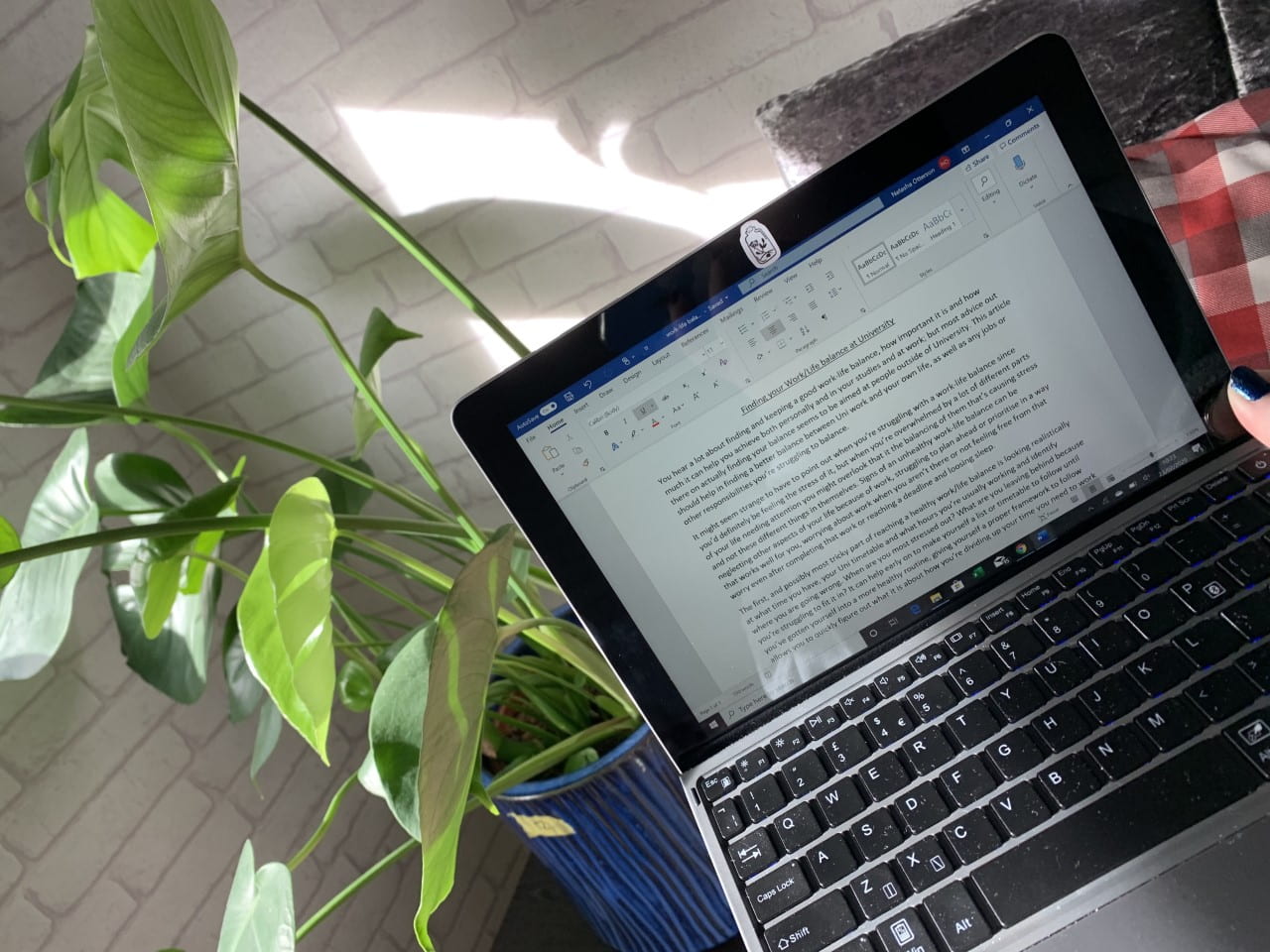Hi! I'm Tash, a third year English student and (very very very) amateur photographer, who is liable to accidentally dye my light clothes (or friends, or seats, or walls) blue with my hair whenever it rains :)

Finding your work/life balance at university
March 9, 2020,
read.
This article is more than 3 years old
You hear a lot about finding and keeping a good work-life balance, how important it is and how much it can help you achieve, both personally, in your studies and at work.
However, most advice out there on actually finding your balance seems to be aimed at people outside of university. This article should help in finding a better balance between uni work and your own life, as well as any jobs or other responsibilities you’re struggling to balance.
When you’re overwhelmed by a lot of different parts of your life that are needing attention, you might overlook that it is the balancing of them that’s causing stress, and not these different things in themselves. Signs of an unhealthy work-life balance can be neglecting other aspects of your life. You may be struggling to plan ahead or prioritise in a way that works well for you, you may be worrying about work when you aren’t there or not feeling free from that worry even after completing that work, or reaching a deadline and still loosing sleep.
Think realistically
The first, and possibly most tricky part of reaching a healthy work/life balance is looking realistically at what time you have, your uni timetable, what hours you’re usually working, and identifying where you are going wrong. When are you most stressed out? What are you leaving behind because you’re struggling to fit it in? It can help early on to make yourself a list or timetable to follow until you’ve gotten yourself into a more healthy routine, giving yourself a proper framework to follow allows you to quickly figure out what it is about how you’re dividing up your time you need to work on.
Don’t take on too much
Generally, universities suggests that for students working part time while studying full time, keeping to 10-15 hours work a week is best if possible. This should stop work overtaking your time to look after yourself and be social outside of university, while also leaving you earning enough to help support yourself during your studies. If part of your struggle with balancing your life with work is related to your worrying about money and being able to meet your living cost, the university can help you with funding issues and offer advice that can hopefully take away that anxiety for you; head into the Student Support Centre on the ground floor of Minerva to have a conversation.
Make time for yourself
Finally, one of the most important parts of a healthy work-life balance is making time for yourself and your friends; this part is often the one that takes a backseat compared to work or study. Keeping yourself happy and enjoying time with your friends while you’re working at uni, will help you to cope better with heavier workloads and deadlines, giving you that well-needed time off, as well as them being people you can turn to if you start to struggle. The social side of being at university is just as helpful to you as your taught programme, so making sure to factor in time to relax, and fill your time how you want to, will keep you rested and better able to keep a healthy balance.
This article is featured on Learning at Lincoln.
Please note: This content was created prior to Coronavirus, and some things might be different due to current laws and restrictions. Please refer to the University of Lincoln for the latest information.




